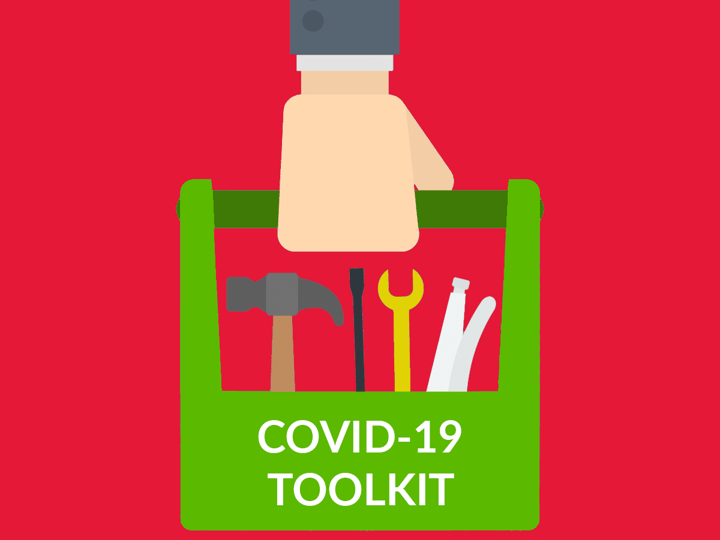Here’s a picture that might look familiar: You’ve had your recruitment blog up and running for a while now, but you’re struggling to see what all the fuss about. You’re spending time writing blog content that no one is reading and if you’re really honest, you’re not sure what the point is in having a blog at all.
A lot of recruitment businesses struggle to see the value in blogging, so if this sounds familiar to you, you’re not alone. But the good news is, there are lots of things you can do to make your blog a really valuable tool for your agency.
We’ve been running the Firefish blog for ten years now, and we’ve learned more than a few valuable lessons along the way. So, we thought we’d share some pointers to help you troubleshoot your blog so you can start seeing the great value they can bring.
Here are a few reasons your blog might be failing you right now and, most importantly, what you can do about it.
1. You don't know your audience well enough

When you’re running a recruitment blog, your audience is a lot more complex than most other blogs will be working with. Candidates and clients are completely different audiences with different challenges, needs and interests, so trying to write for both audiences at the same time will only result in weak blogging.
If you don’t know exactly who you’re writing to, you can’t identify pain points or relevant topics to write about.
So, take some time to get to know your audience, create some clear recruitment marketing personas and tailor each piece of content to suit just one of your personas at a time. If you’ve never done this before, you’ll be surprised how much stronger and more focussed your content will be once you’ve clarified your audience.
2. You don't have a content plan
It’s crazy how many recruitment businesses still don’t stick to a content plan when running their blog. Instead, they publish blog content if and when someone in the company has time on their hands and a topic they’d like to write about.
Planning what content is going out on your blog and when isn’t just about being organised (although that is part of it). Planning ahead also makes you think more carefully about who each blog post is for, why you’re writing it in the first place and what results you’d like to get out of each piece you publish.
It’s true that planning ahead has been quite difficult since Covid-19 swept in and mucked up our marketing plans! But as the old saying goes, fail to prepare and prepare to fail. A flexible plan is better than no plan.
3. You have no consistency
 Inconsistency is a real killer for blog engagement. People subscribe to blogs because they read something they enjoy and want to see more of the same – so give them what they’re looking for.
Inconsistency is a real killer for blog engagement. People subscribe to blogs because they read something they enjoy and want to see more of the same – so give them what they’re looking for.
If you subscribed to the Metro and started getting updates that read like the Financial Times, you wouldn’t like it either, right?
Keep the voice of your blog consistent, and this is particularly the case if you have multiple writers all writing for the same blog. Of course, your tone is likely to be different depending on which audience your blog is aimed at: For example, you’ll be more informal when speaking to candidates than you would be in blogs written for clients, prospects or investors.
The main thing to remember is that readers appreciate consistency and like knowing what to expect, so don’t give them any surprises or you’ll end up with unsubscribes.
4. Your blog's not useful to anyone
So many businesses still make the mistake of not thinking carefully enough about their audience’s needs and challenges when writing content for their blog. Before you even start to write a piece of content, you need to ask yourself – what’s in it for them?
Making a blog too promotional, overly opinionated or even too subjective or doesn’t work for one major reason: it’s all about you, not the reader.
So be strategic with your content and use data, stats and links to reputable sources to strengthen what you have to say. That way, your readers will begin to trust what you’re saying and see you as an authority in your field.
5. You’re not promoting your content enough
 When you publish a new blog, what do you do to let your network know? No matter how interesting or well-written your content is, if you don’t get it in front of people, no one will read it.
When you publish a new blog, what do you do to let your network know? No matter how interesting or well-written your content is, if you don’t get it in front of people, no one will read it.
Post across all your company social media channels and ask your recruiters to publish across their personal accounts too – research has shown that personal accounts get 24 times more engagement than a brand accounts will get. Do you have share buttons on your blog that make it easy for your readers to share with their networks too?
If you find social media a bit of a slog, it’s worth mentioning that as much as 80% of the traffic we receive on new content on the Firefish blog comes from email marketing. Every time we publish a new blog, we email it out to our blog subscribers – but we only send it to those personas it’s actually relevant to.
If you’ve not set up an process for gathering blog subscribers yet, this guide will give you tips on how to do that (just replace the words ‘job alerts’ with ‘blog’!).
6. Your blog looks crap
A sure-fire way to turn readers off your blog is if they land on a page that’s chock-full of huge rambling paragraphs of text with no breathing space.
Short paragraphs with scannable headers are really important to blog writing, because people digest online content differently to things they read on paper. The average time spent on a web page is less than 15 seconds!
Try not to take this to heart - there’s nothing wrong with scan reading. You just have to make sure you cater to those kinds of readers when laying out your content. Headers allow people to zoom in on parts of your blog that they find personally interesting or useful – help them find what they’re looking for.
Ugly blog images are a real turn-off too. The days of awkward stock images are unfortunately not behind us yet in the business world, but there’s really no excuse for it these days. There are swathes of sources for royalty-free images online nowadays and plenty of free design tools out there that make it easy to make your own images too.
7. You haven’t optimised for SEO
 Unfortunately, a lot of people who read this blog just will skim over this section because they think SEO is ‘just for techies’, but this really isn’t the case.
Unfortunately, a lot of people who read this blog just will skim over this section because they think SEO is ‘just for techies’, but this really isn’t the case.
Having an awareness of SEO is so important to making your content visible online and ignoring this will be at the serious detriment of your blog.
It doesn’t take a lot to get an SEO strategy in place and contrary to popular belief, anyone can do it. To get started in making those small changes to your blog that will have a big impact on how many people find it when using search engines like Google, read this SEO guide for recruiters.
8. You’re not learning from your results
You can read all the guidance in the world on how to manage a great blog but in reality, only you know what works for your audience. Ignoring the data you hold on how your audience consumes your content means your blog stats will never improve over time.
You’re the only one with access to the blog metrics worth caring about (if you have limited data for this, try hooking it up to Google Analytics – it’s free). Every time you publish something, this is an opportunity to learn more about your audience from your data. And with every learning is a new opportunity to adapt your strategy and improve of your results.
Use the eBook below to get back to the basics of blogging. If you make sure you're covering the fundamentals of running a recruitment blog, you'll set yourself up for long-term blogging success.
Katie Paterson
Katie once headed up the Firefish blog and marketing team. She now works as a freelance copywriter and continues to contribute to our award-winning blog.




